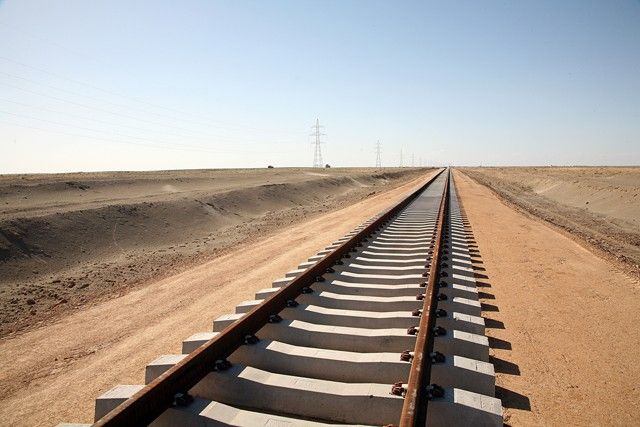KABUL (TCA) — The shipment of goods to Afghanistan by rail from China stopped three months ago due to the lack of infrastructure at the Afghan port on the Uzbek border and the absence of trade and transit agreements with Uzbekistan, TOLOnews agency reports.
Afghanistan Chamber of Commerce and Industries (ACCI) on September 11 said that the rail route stopped after the Chinese company involved suspended its operations.
But the Afghan Ministry of Commerce and Industries has expressed hope that with the signing of trade and transit agreements with Uzbekistan, Afghanistan will be able to remove obstacles in the way of its commercial relations with China regarding the railway line.
“Over the past three months we received no imported goods. When we consulted the companies, they pointed out the issues around transit facilities and the lack of infrastructure for loading and unloading and a subsidy issue,” said Atiqullah Nusrat, CEO of ACCI.
According to the ACCI, the lack of infrastructure at Hairatan Port was cited as one of the key reasons for the Chinese company suspending its operations.
Initially the Chinese government said it would subsidize a company to take responsibility of transporting goods to Afghanistan by rail. However, the company reportedly stopped its operations after the Chinese government suspended its subsidy.
“The work has been done on the draft package from Afghanistan’s side, the draft has been sent to Uzbekistan, an agreement will be signed in the near future; maybe during the tour of the [Afghan] president to Uzbekistan or the trip of high level officials from Uzbekistan to Afghanistan. The transit agreement with Uzbekistan will help us to get connected to Kazakhstan and onward to China,” said Musafir Qoqandi, spokesman for the Afghan Ministry of Commerce and Industries.
ACCI says that by road, goods take two months to get between China and Afghanistan but with the railway route the time is cut to only twelve days.
Last year the first Chinese cargo train arrived in the northern Afghan port city of Hairatan on the border with Uzbekistan. The move was part of an initiative Afghan officials in Kabul hoped would boost the national economy.









